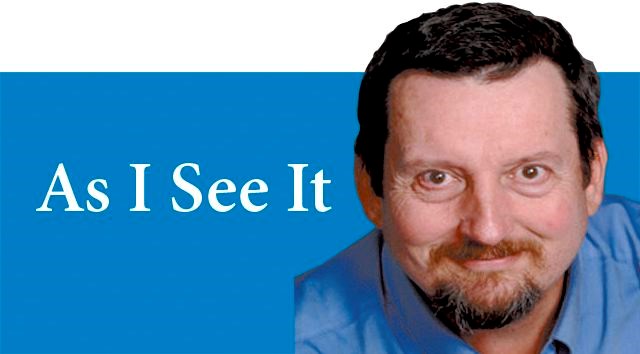Last week I mentioned I am rereading Robert Reich's book Aftershock, an analysis of both the recent recession and the response of the financial world to it.
His basic premise is the widening wage gap hides the fundamental inequities in our economic model, resulting in workers unable to afford the lifestyle to which we have grown accustomed. Fifty years ago, most families had only one car and colour television sets were rare.
No one had a smart phone or personal computer. They were just dreams. Now, they seem to be necessities.
But as middle class wages failed to keep up, people had to find alternative ways of coping. According to Reich, over the past 40 years, we in the developed countries of the world have employed three basic strategies to address our shortfall in income.
The first was women moving into paid work in greater and greater numbers. This began in the 1970s and continues to this day. For some women, particularly university graduates, this was a natural progression but for the vast majority of women, paid work was necessary to prop up the family income as households were hit by the stagnant wages for male workers.
The second strategy was working longer hours. By the mid-2000s, it was not uncommon for men to work more than 60 hours per week at multiple jobs and for women to work full-time. By the 2000s, the typical American worker spent more than 2,200 hours at work which is 500 hours or 12 weeks more than in 1979.
In the 1960s a family could live comfortably on 48 weeks of wages, but now the same standard of living requires double that.
The third coping mechanism employed was to draw down on savings and borrow to the hilt.
Second mortgages, multiple credit cards, and pulling money out of self-directed pension plans were popular strategies. By 2007, a typical American owed 138 per cent of their after-tax income.
Making ends meet was no longer possible.
I mention this because while Reich points out three coping strategies, governments dangle a fourth in front of the voting public - lower taxes.
Indeed, an H&R Block television commercial points out half your money is spent on taxes but "it is your money." The commercial recommends using their services to get a refund.
But what is the first thing they recommend doing with the refund? Buy a new phone. Sounds good and who can't use a brand new smart phone? Except the phone isn't produced in Canada and its purchase doesn't support Canadian manufacturing jobs. The money is sent overseas. Indeed, much of the purchase price of just about anything we buy is sent to foreign investors.
Lower taxes sound great and they certainly make a difference in take-home income, but they hide the fundamental flaw in our economic structure for a short period of time.
What about all of the things which taxes pay for? Schools, hospitals, universities, roads, bridges, sewer lines, water mains, highways, tunnels, police, doctors, paramedics, teachers, soldiers, and the list goes on.
What happens as we cut back on taxes? We can't afford to replace failing infrastructure.
For a short time, people enjoy the prosperity. They have more money in their pocket. Their purchasing power has increased.
But when they need potholes filled or to visit an emergency room, they are left waiting. There is no money.
The Speech from the Throne last Tuesday said all the right things - if you believe lower taxes will actually make a difference.
It spoke to why people live in our great province by saying "Secure a great job, own a home, and be able to keep more of their hard-earned money."
But is that the reality in our province? Wages haven't kept up and we are paying for it by borrowing against the future through deferred costs.
As a coping strategy, lower taxes might sound good but it will cost us in the long run.
A few weeks ago, I was talking with a diverse group of people and the subject of Stuart McLean's continuing story of Dave, Morley, and the gang came up. The group spanned a range of ages and profession, including two students, but everyone in the group both knew of the stories and had a favourite. I think this is perhaps what we have lost with the Stuart McLean's passing - a storyteller extraordinaire able to cross social, cultural, and economic boundaries and touch each and every one of us in some fashion.
My favourite story is Dave training Galway to use the toilet. I was driving through Hope when I first heard him tell this tale and I had to pull off the road until he finished as I was laughing too hard. But that was Stuart McLean and the Vinyl Caf.
He will be missed.



